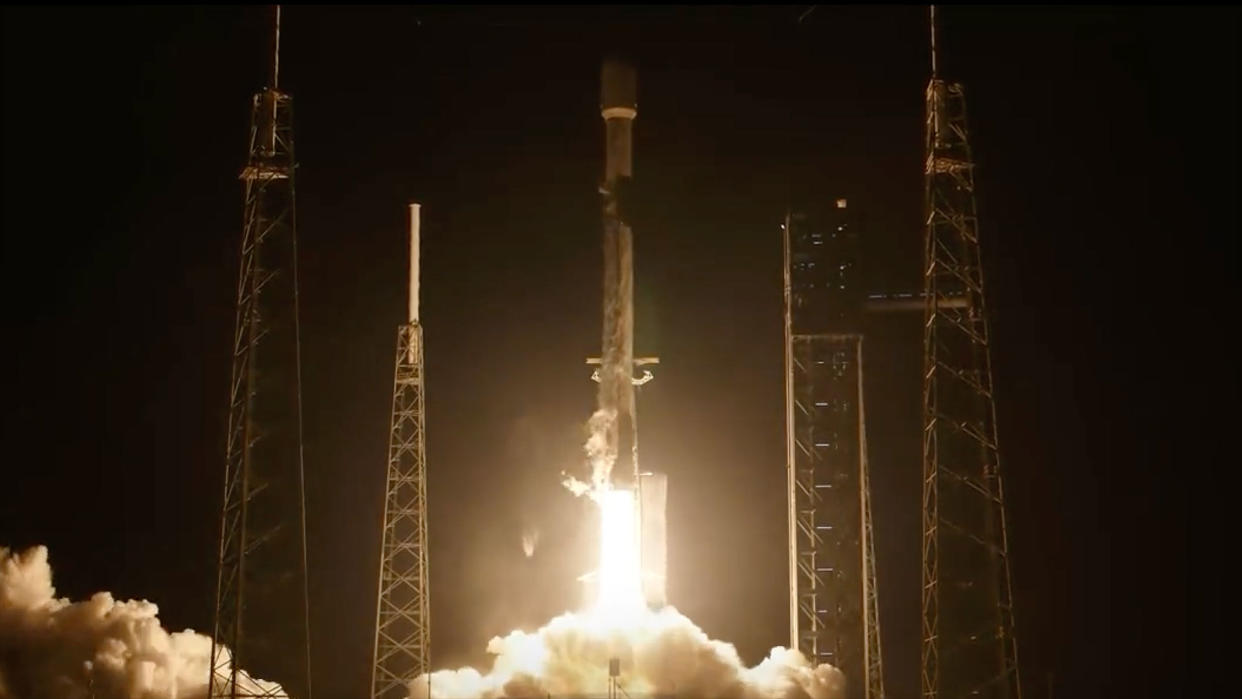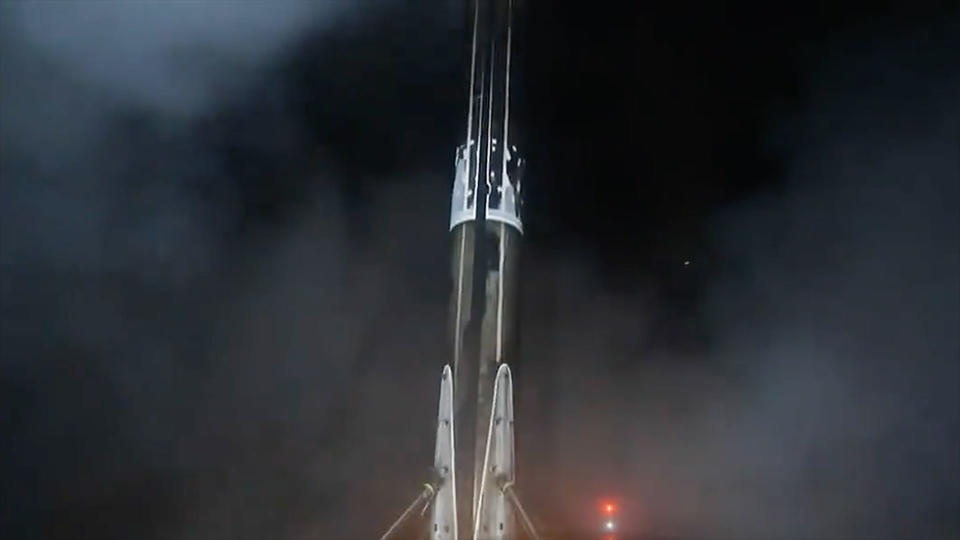SpaceX launches Starlink satellites on record 20th reflight of a Falcon 9 rocket first stage

SpaceX has broken its rocket-reuse record yet again.
A Falcon 9 rocket launched 23 of SpaceX's Starlink internet satellites to orbit from Florida's Cape Canaveral Space Force Station on Friday (April 12) at 9:40 p.m. EDT (0140 GMT on April 13).
It was the 20th liftoff for this particular Falcon 9 first stage, according to a SpaceX mission description, setting a new reusability mark for the company. The mission lifted off on the 43rd anniversary of NASA's first launch of its reusable spacecraft, the space shuttle, which first flew this day in 1981.
Related: Starlink satellite train: How to see and track it in the night sky

To plan, the Falcon 9's first stage came back to Earth for the 20th time, landing about 8.5 minutes after it launched on the drone ship A Shortfall of Gravitas, which was stationed in the Atlantic Ocean off the Florida coast.
The Falcon 9's upper stage, meanwhile, continued hauling the 23 Starlink satellites to low Earth orbit (LEO). The spacecraft were set to be deployed there about 65.5 minutes after liftoff.
RELATED STORIES:
— SpaceX Falcon 9 rocket ties reuse record with 19th launch (video)
— 8 ways that SpaceX has transformed spaceflight
SpaceX founder and CEO Elon Musk wants to help humanity colonize Mars and achieve a variety of other ambitious exploration feats. Rocket reusability is a key part of this vision, helping to cut the cost of spaceflight and increase its cadence.
So SpaceX's reuse records don't tend to last long. The previous mark — 19 flights for a Falcon 9 booster — was first set in December 2023 and then repeated in February and March 2024.
SpaceX has now launched 38 orbital missions so far in 2024. Most of them have been dedicated to building out its Starlink broadband megaconstellation, which currently consists of nearly 5,650 operational satellites.

